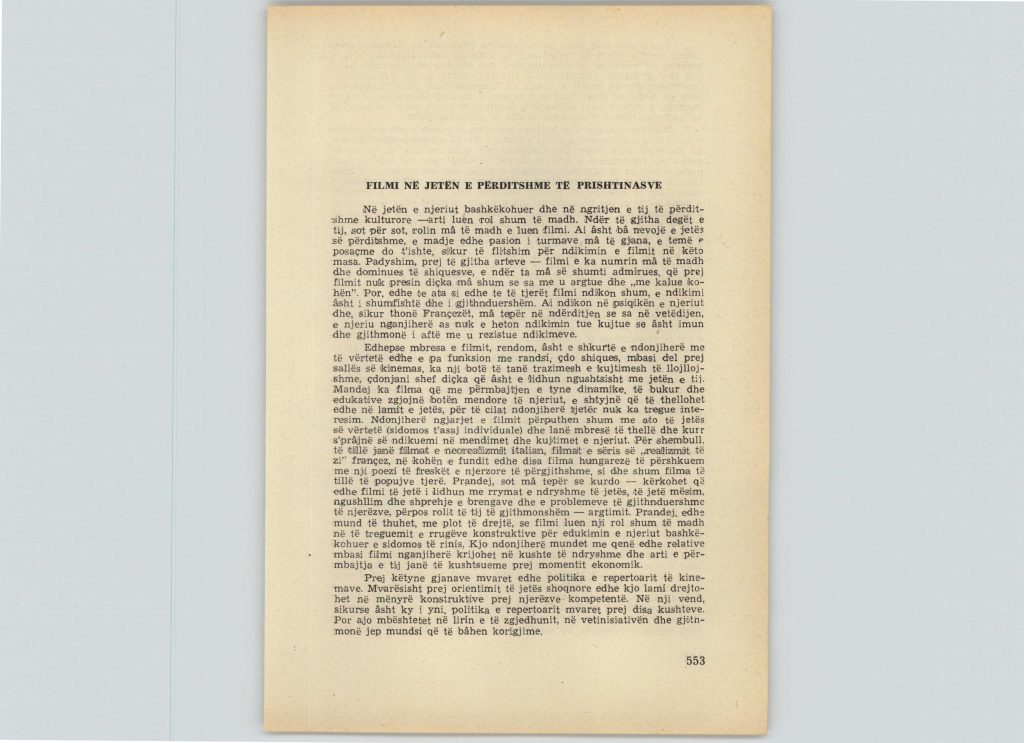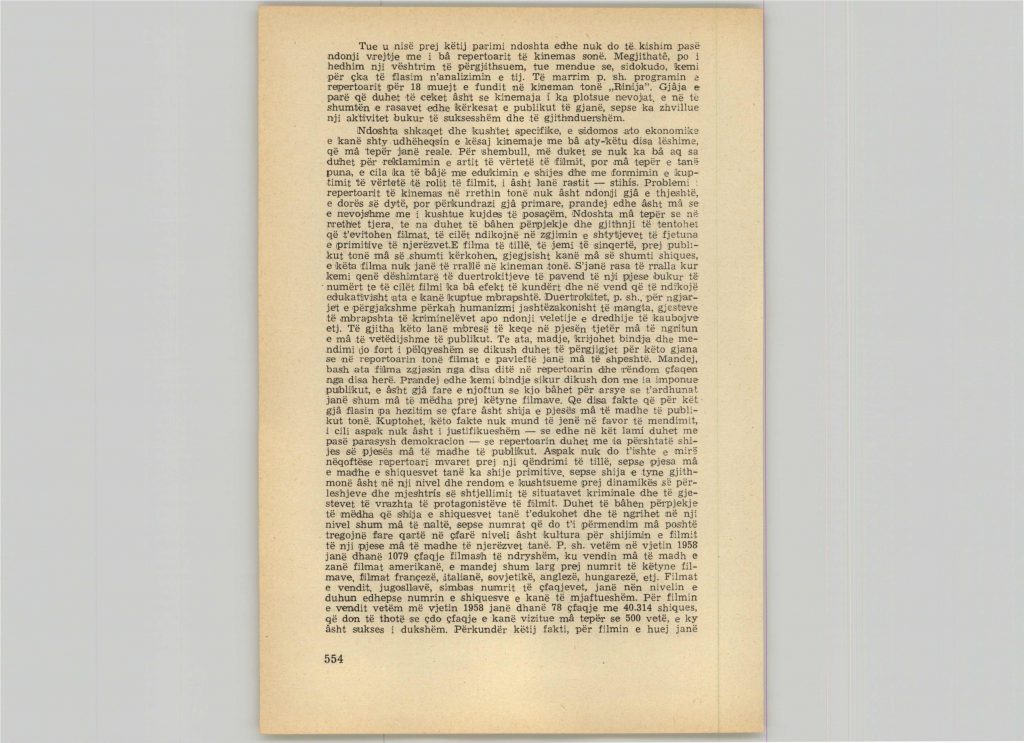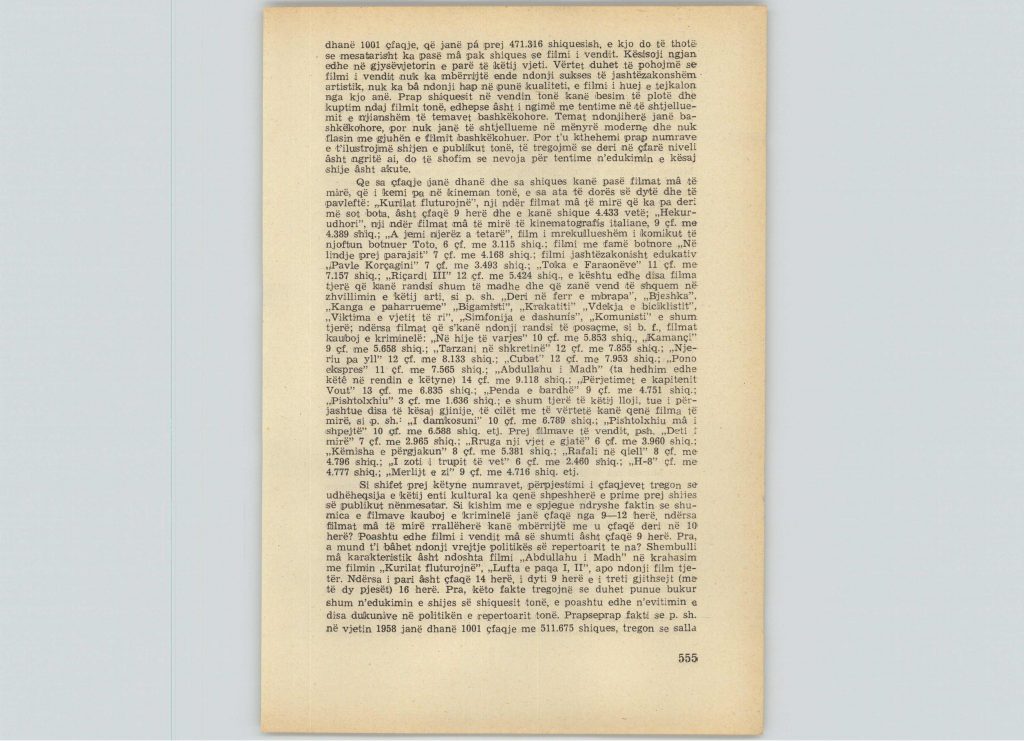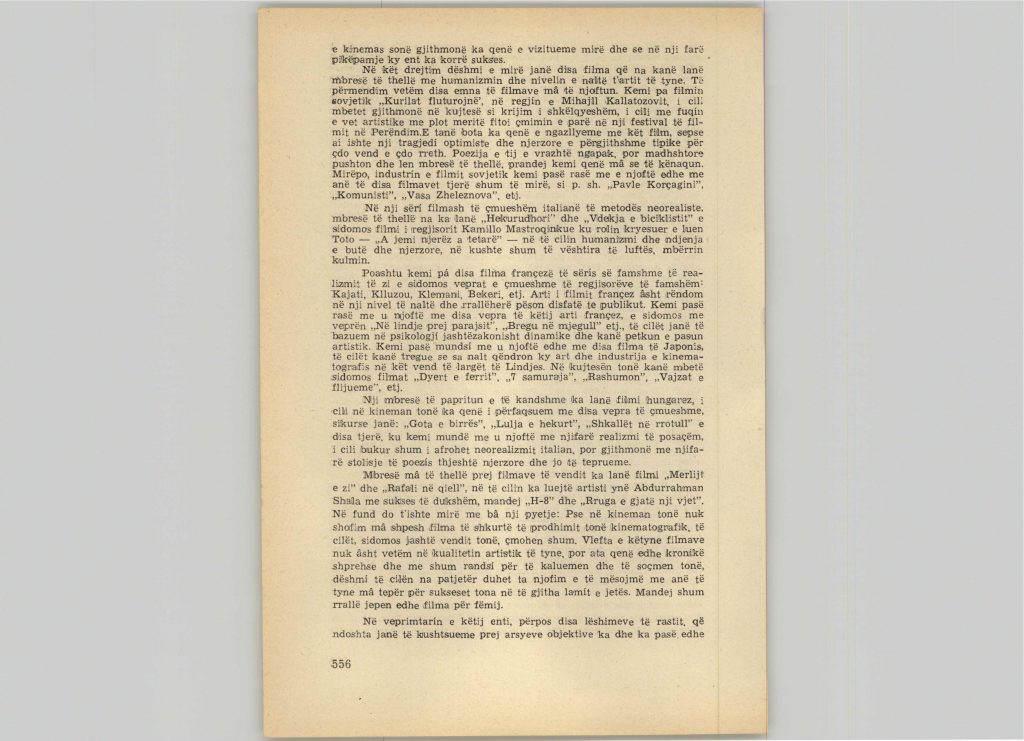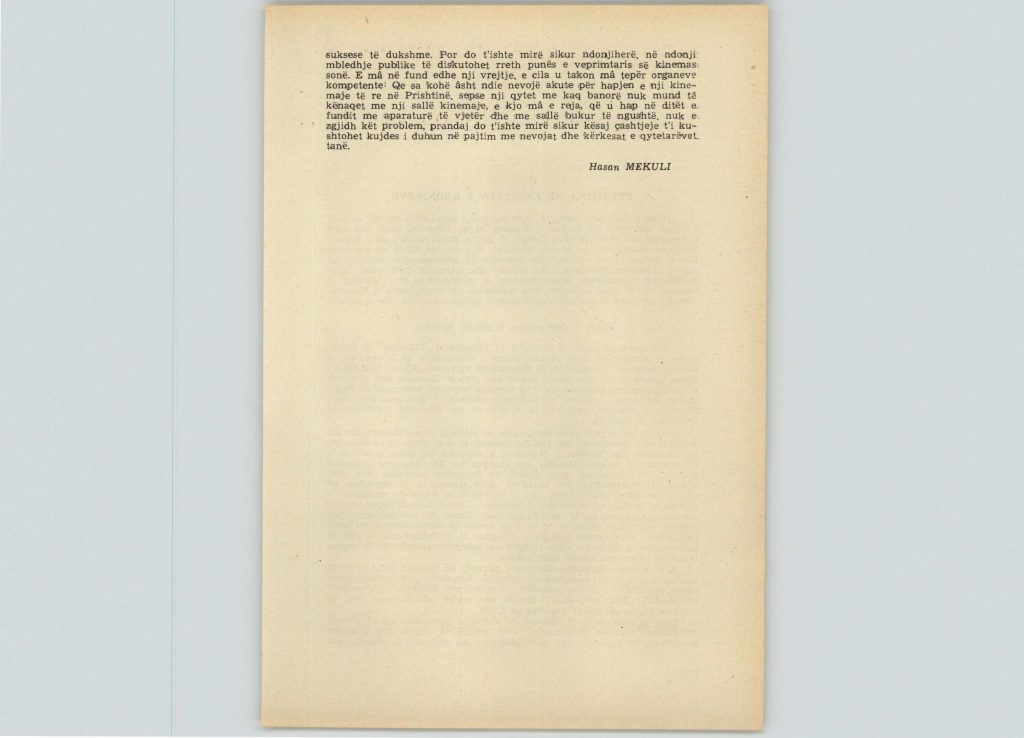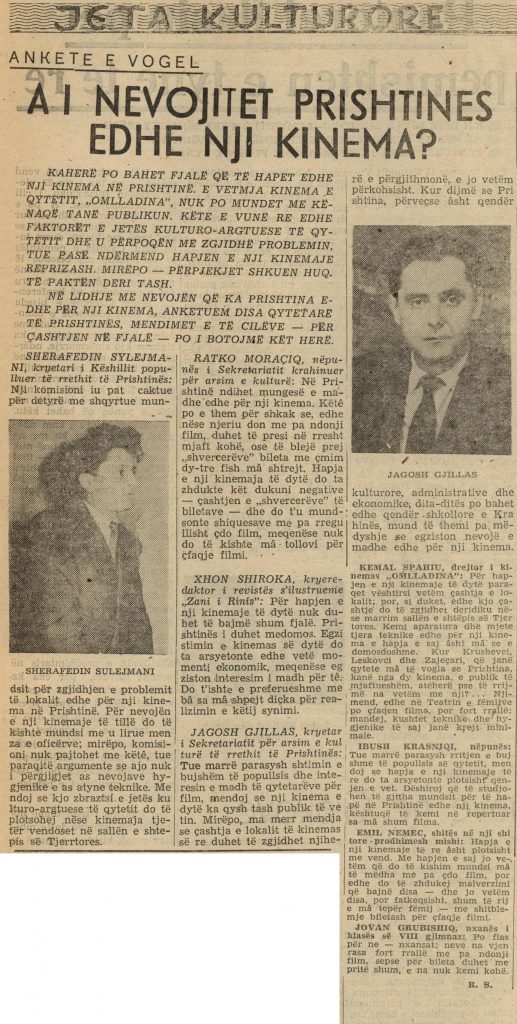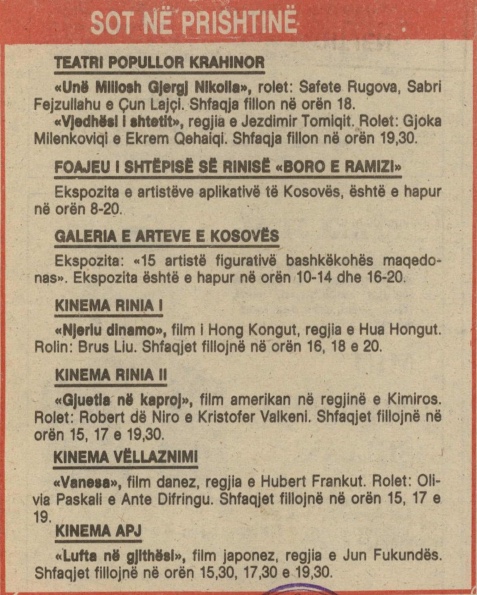Hasan Mekuli’s amusing article ‘Filmi në jetën e përditshme të Prishtinasve’ (Film in the everyday life of Prishtina’s citizens) was published in 1959, in the 7th and 8th issues of the Përparimi journal. Within, Mekuli discusses the programming of the Kino Rinia cinema in Prishtina, and criticises the lack of less commercial, artistic films in the programme. The article is especially important because of the impressive statistics that it illuminates from the screening programme of 1958. According to the article, 1079 films were screened in 1958, and most of them were American productions. Only 78 screenings slots were spared for the films from Yugoslavia, which were screened in front of 40314 spectators. This figure is quite massive, suggesting that more than 500 people were present in each screening. The remaining 1001 screenings were of foreign productions, where in total 471316 people attended. This means that on average there was better attendance for the local films than the foreign ones. Mekuli complains that there were fewer screenings and worse attendance to some of the great Italian and Soviet films than the American “cowboy” films.
Let us look more closely at some of the statistics here. Pietro Germi’s drama film The Railroad Man was screened nine times, totaling the attendance of 4389 people. Another great classic, Mikhail Kalatozov’s The Cranes are Flying was also screened nine times, in front of 4433 people. On the other hand, King Vidor’s American Western, Man Without a Star, was screened twelve times with an attendance of 8133 people. However, the most watched film, perhaps somewhat surprisingly, was the orientalist comedy of Gregory Ratoff, Abdulla the Great. The film was screened fourteen times in which 9118 people came to watch it.
In the end of his article, Mekuli points out that Prishtina, with its growing population, needed more than one cinema, and that the new cinema that had recently opened could not meet the needs of its public with its old equipment and narrow hall. He does not name this new cinema hall, however, according to the Rilindja archives, on 25th of May 1959 a new cinema called Vllaznimi was opened in Prishtina. Kino Vllaznimi was the second cinema of the city after Kino Rinia, and it was inaugurated with a presentation of Edmund Goulding’s classic film, Grand Hotel. During the 1950s, the inadequacies of the cinema halls in Prishtina was a frequent topic of discussion. Alongside Mekuli’s article, we present a short inquiry into the question of the need for a new cinema in Prishtina, which was published on 8th of February 1958, in Rilindja.
